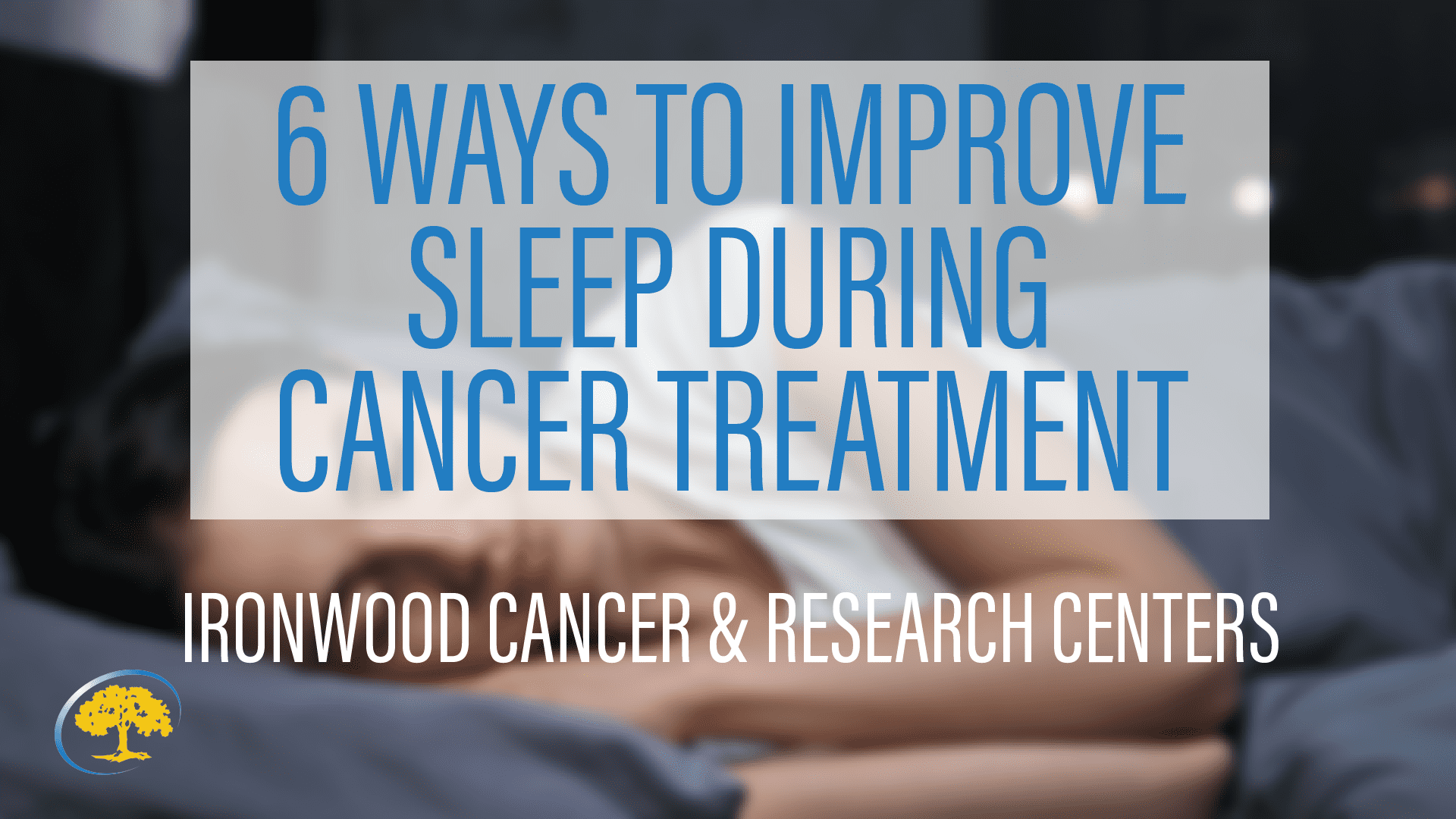
Posted 5 years ago
6 Ways to Improve Sleep During Cancer Treatment
It is not uncommon for patients undergoing cancer treatment to have difficulty getting a good night’s sleep. Whether it’s falling asleep or staying asleep, it is estimated that 50% or more of patients report problems with sleep during and after their cancer treatment. The good news is there are ways to improve sleep during cancer treatment.
The issues with sleep can be related to several factors, including the medications used during chemotherapy, anxiety, stress brought on by a cancer diagnosis treatment and altered sleep patterns from inactivity and daytime napping.
The following recommendations are 6 Ways to Improve Sleep During Cancer Treatment:
Creating A Sleep Routine
Step One
Create a nightly bedtime routine that includes going to bed at the same time and waking up at the same time each morning. Two hours before going to bed, dim the lights in your home and avoid the blue light from your TV or computer screen. Try to avoid napping for more than 1 hour during the day and do not nap after 3 pm. If you can’t fall asleep after 30 minutes, then get up out of bed and read or listen to relaxing music or an audiobook. Once you are sleepy return to your bed to try to fall back to sleep.
Step Two
Before going to sleep, create a wind-down routine that will help you relax and get your brain ready for sleep. Listening to a guided meditation or a guided progressive muscle relaxation recording every night before you go to bed can help transition your mind into sleep mode. Listening to calming music, journaling, and drinking relaxing teas like chamomile or lavender before bed can also be helpful.
Step Three
Although cancer treatment can wipe you out, it is essential to get some physical activity every day, even if it is just walking a few laps around the house. Ironwood Cancer Centers offers chair yoga and Tai chi classes. These classes are usually gentle enough for most to participate in during treatment and can be beneficial for improving sleep. Physical exertion can make it easier to sleep at night, but it is best to exercise in the morning or early afternoon so that it will not activate your brain too late in the day and interfere with falling asleep.
Try Aromatherapy
Step Four
Aromatherapy can be a helpful way to relax and wind down to improve sleep. Some useful essential oils are lavender, valerian, and frankincense. Place a few drops on your pillowcase or in a diffuser in your bedroom before you go to bed.
Supplements and Sleep
Step Five
There are many over the counter supplements that can help with sleep. Melatonin, a sleep hormone, is one of the most commonly used sleep supplements. Effective dosing can be anywhere between 1-10mg taken 1-2 hrs before bed. Glycine, which is an amino acid, is another supplement that can be helpful with sleep. The dose is 3 grams 1 hr before bed. CBD oil has also shown some benefit as a sleep supplement. Dosage is 3- 15 mg held under the tongue for a few minutes 1 hr before sleep.
Speak to a Professional
Step Six
If you are still really struggling to get some sleep after trying these natural approaches, it is important to talk to your doctor about obtaining a prescription sleep aid.
About the Author, Dr. Heidi Rula
Dr. Heidi Rula joined Ironwood in 2018 to launch the Integrative Oncology program. She is board certified in family medicine and fellowship trained in Integrative Medicine. Dr. Rula has been a practicing physician in the Phoenix area for approximately 20 years and has been recognized by her colleagues as one of Phoenix’s “Top Doctors” on multiple occasions.
About Ironwood Cancer & Research Centers
Ironwood Cancer & Research Centers (ICRC) is the largest multi-specialty oncology network in the Greater Metro Phoenix area. They have over 100 medical providers, a robust Integrative Services program and a dedicated clinical research department. Ironwood Cancer & Research Centers has 15 valley locations and five comprehensive cancer care centers that offer a multi-disciplinary approach for expedited personalized patient care. For more information, please visit www.ironwoodcrc.com.



